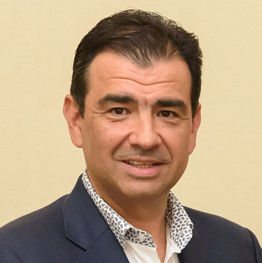An international trade body has set out a blueprint for global tobacco control system. The International Tax Stamp Association (ITSA), a not-for-profit body of suppliers of tax stamps and track and trace (T&T) systems to governments, says the plan can cut fraudulent trade and promote best practice, and be compliant with the World Health Organisation’s (WHO) Framework Convention on Tobacco Control (FCTC) and its Protocol to Eliminate Illicit Trade in Tobacco Products.
The FCTC working group on tracking and tracing systems was due to meet in Brasilia in April. It draws on best practices used by tax administrations against illicit trade of tobacco products. It adheres to the requirements of Article 8 of the Protocol, which sets out that T&T systems should be independent of the tobacco industry.
ITSA puts forward a series of recommendations on operational aspects of a T&T system and assignments of responsibility. The recommendations include establishing a national and/or regional database to register stakeholders (manufacturers, distributors and wholesalers) and products, and affixing on every pack of cigarettes a tax stamp issued by the competent authority of the destination market. Many tax stamps now contain a combination of special designs, multiple security layers, a unique serial number and encrypted codes that make them almost impossible to counterfeit.
Juan Carlos Yañez, chairman of ITSA, pictured, said: “Our proposed technical and governance model is a blueprint for parties willing to implement an FCTC Protocol-compliant system. The Protocol is widely recognised as an international standard of best practice for the regulation of tobacco production and distribution, one that will help to reduce illicit tobacco trade providing that countries comply with it.
“Although certain tasks, such as the reporting of manufacture and shipment information, may be carried out by the tobacco industry, the vast majority of other tasks should be undertaken by the relevant competent authority. This would enable T&T policy and practice to be largely free from the influence of the tobacco industry – an important consideration set out in the Protocol.
“We have seen examples around the world where T&T system tenders have been awarded to companies with close ties to the industry. This contravenes the spirit of the Protocol and could result in the implementation of systems that are not safe and secure. If this happens, it will make it more difficult to cut crime, improve health outcomes and enable revenue authorities to recoup taxes owed to them.”
A European Union proposal allows for the delegation of key activities to the tobacco industry or a supplier of its choice. Mr Yañez called that unfit for purpose. “For example, it allows for four of the five security features prescribed for cigarette packs destined for the EU market to be selected and produced by the tobacco industry itself, which opens the door to misuse and, potentially, fraud. In contrast, our model is more in line with the FCTC Protocol in that it calls for the strict minimum of tasks to be delegated to the industry.”
Visit www.tax-stamps.org.










